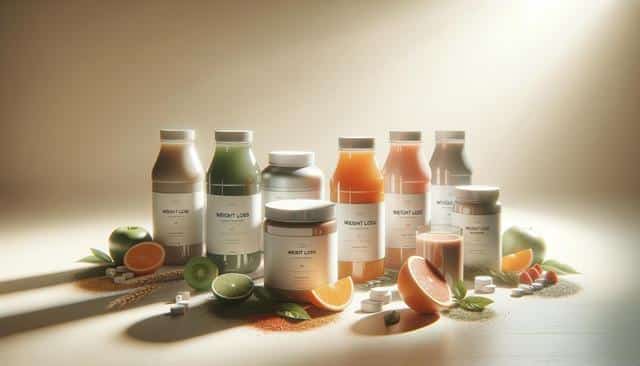
Refreshing Drinks That May Support Your Weight Loss Journey
Green Tea: A Metabolic Supporter
Green tea is often spotlighted for its potential role in weight management. Rich in antioxidants such as catechins, particularly epigallocatechin gallate (EGCG), green tea has been associated with enhanced fat oxidation and improved metabolic rate. While the effects may not be dramatic, incorporating green tea into a balanced diet and active lifestyle could offer a gentle boost in calorie-burning capacity. Many people enjoy green tea either hot or cold, making it a versatile and low-calorie beverage option. It’s essential to choose unsweetened versions to avoid added sugars that can counteract your health goals.
Some potential benefits of green tea include:
- Support for metabolism and fat oxidation
- Hydration with minimal calories
- Contains natural compounds that may aid overall health
While green tea alone is not a magic solution, it can be a complementary part of a broader wellness routine. Drinking it before workouts or with meals may also help enhance its potential benefits.
Apple Cider Vinegar Drinks: A Tangy Option
Apple cider vinegar (ACV) has gained attention for its possible role in appetite control and blood sugar regulation. When diluted in water and consumed before meals, ACV drinks may help reduce spikes in blood sugar and increase feelings of fullness. However, it’s important to use apple cider vinegar responsibly, as its high acidity can harm tooth enamel and irritate the digestive tract if consumed undiluted or excessively.
To make an ACV drink more palatable and safe:
- Mix 1–2 teaspoons of ACV with 8–10 ounces of water
- Add a splash of lemon juice or a dash of cinnamon for flavor
- Use a straw to minimize contact with teeth
Although more research is needed to confirm the direct impact of ACV on weight loss, many individuals find it a helpful addition to their dietary habits. As with any new addition to your diet, it’s wise to consult a health professional before regular use.
Herbal Teas: Calorie-Free and Soothing
Herbal teas offer a comforting and caffeine-free way to stay hydrated while avoiding sugary drinks. Varieties like peppermint, ginger, and hibiscus tea can provide digestive support and contribute to a feeling of fullness. Some herbal blends may also have mild diuretic effects, which can help reduce temporary water retention, although this does not equate to fat loss.
Popular herbal teas for weight-conscious individuals include:
- Peppermint tea – may help curb appetite and soothe digestion
- Ginger tea – known for its warming effect and support for digestion
- Hibiscus tea – offers a tart flavor and is rich in antioxidants
These teas are naturally free from calories and can be enjoyed throughout the day. Unlike beverages with added sugar or artificial sweeteners, herbal teas can help build a healthier hydration habit without contributing to caloric intake.
Infused Water: A Flavorful, Low-Calorie Choice
For those who find plain water unappealing, infused water provides a flavorful alternative that can encourage better hydration and reduce the temptation to reach for high-calorie drinks. By adding fresh fruits, herbs, or vegetables, you can create a refreshing beverage without extra sugar or calories. Staying well-hydrated is essential for overall health and can also play a role in appetite regulation and energy levels.
Common ingredients to infuse your water include:
- Cucumber and mint – cool and hydrating
- Lemon and lime – tangy and refreshing
- Strawberries and basil – sweet and aromatic
Infused water can be made in large batches and stored in the refrigerator, making it easy to have a healthy drink ready at any time. This habit can help reduce the intake of sugary sodas or juices and support long-term wellness goals.
Black Coffee: A Low-Calorie Energy Booster
Unsweetened black coffee is a popular beverage among those looking to manage their weight. Naturally low in calories, coffee contains caffeine, which may help temporarily increase alertness and metabolic activity. Some studies suggest that caffeine can enhance physical performance and stimulate the release of fatty acids from fat tissue during exercise. However, moderation is key, as excessive caffeine intake may lead to side effects such as jitteriness or disrupted sleep.
Here are a few tips for making coffee work for your goals:
- Stick to plain black coffee without added sugar or cream
- Limit intake to 1–2 cups per day, especially in the afternoon
- Pair coffee with a balanced meal or snack to prevent energy crashes
When used thoughtfully, coffee can be a useful tool for boosting energy and focus throughout the day. It’s important to monitor your body’s response and adjust your intake accordingly.
Conclusion: Explore Healthy Beverage Habits
Incorporating supportive drinks into your routine can be a simple and enjoyable way to align with your weight management goals. From green tea and apple cider vinegar to herbal infusions and black coffee, each beverage offers unique benefits without the added sugars and calories found in many commercial drinks. While none of these options are standalone solutions, they can complement a nutritious diet and active lifestyle. Be mindful of your individual needs, and when in doubt, consult a qualified health professional to ensure the choices you make are aligned with your personal health objectives.


